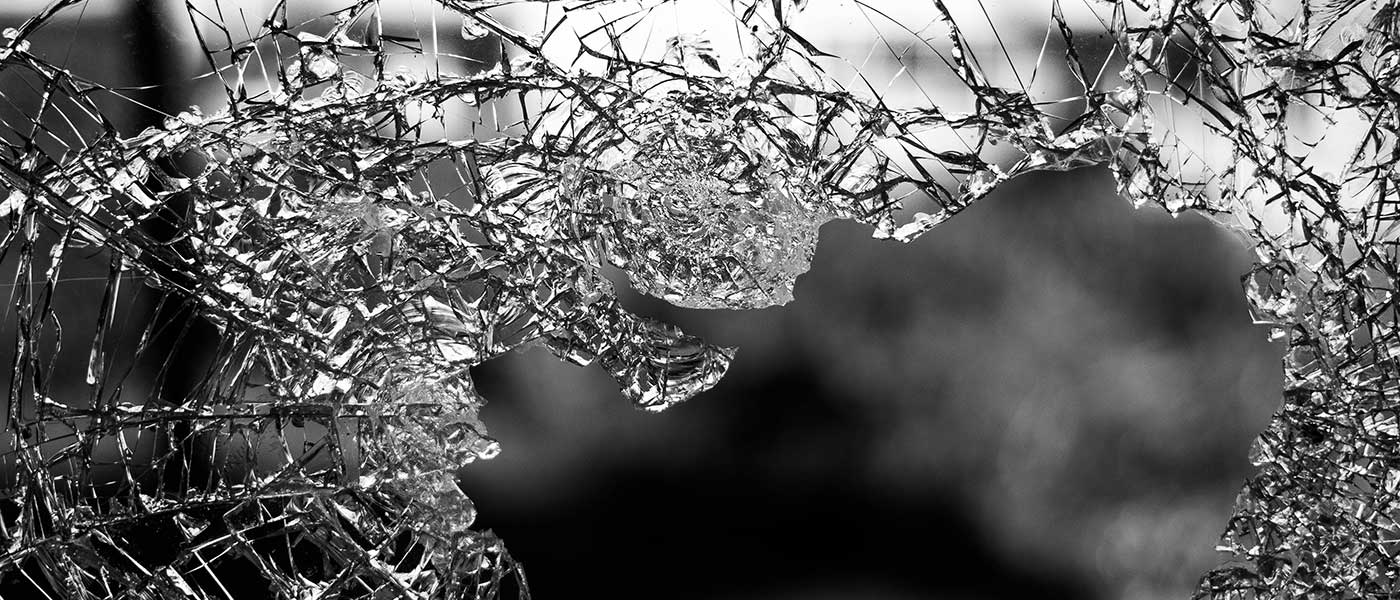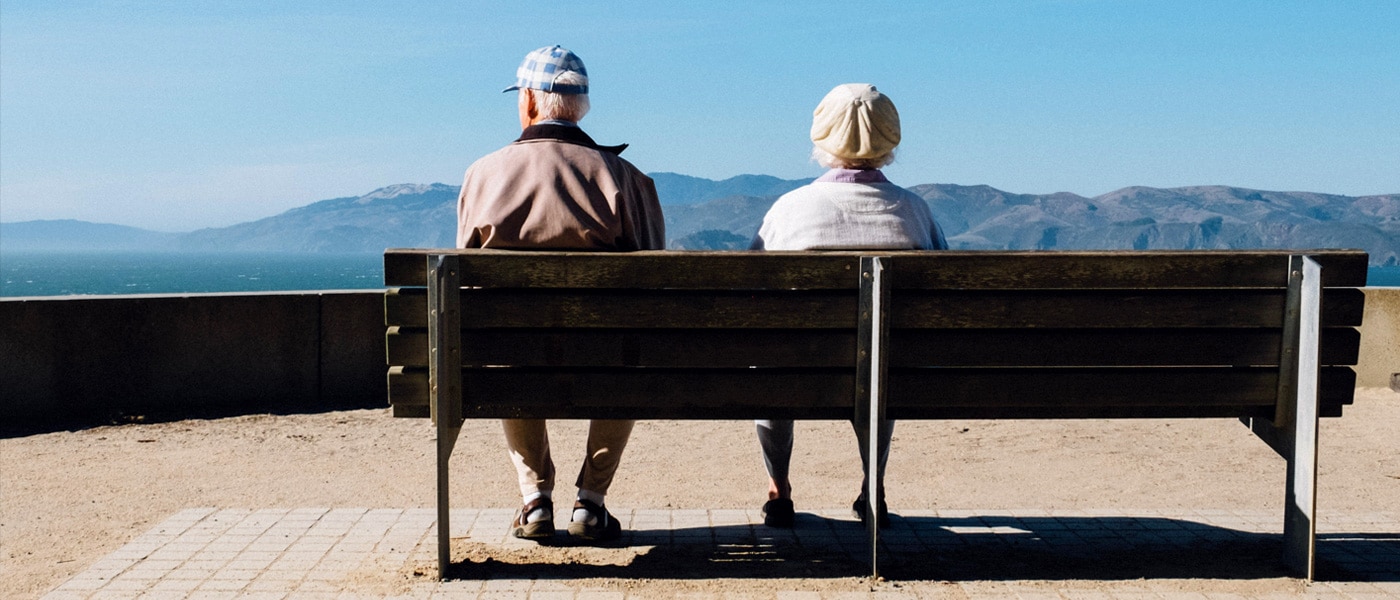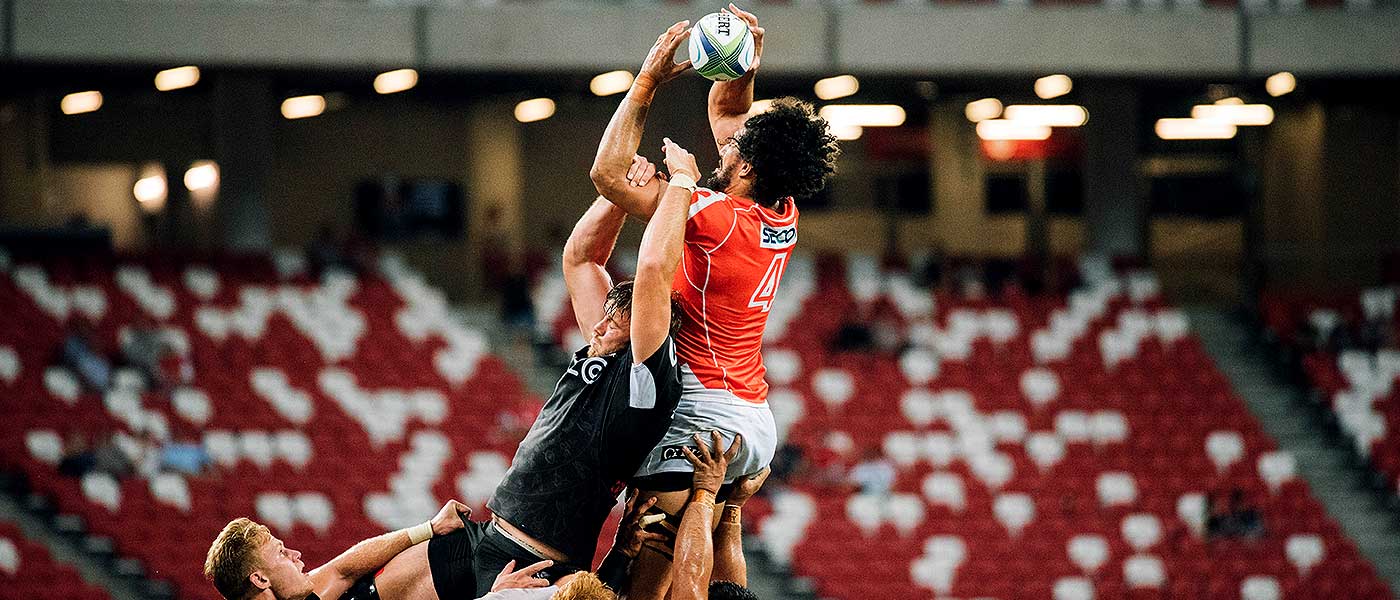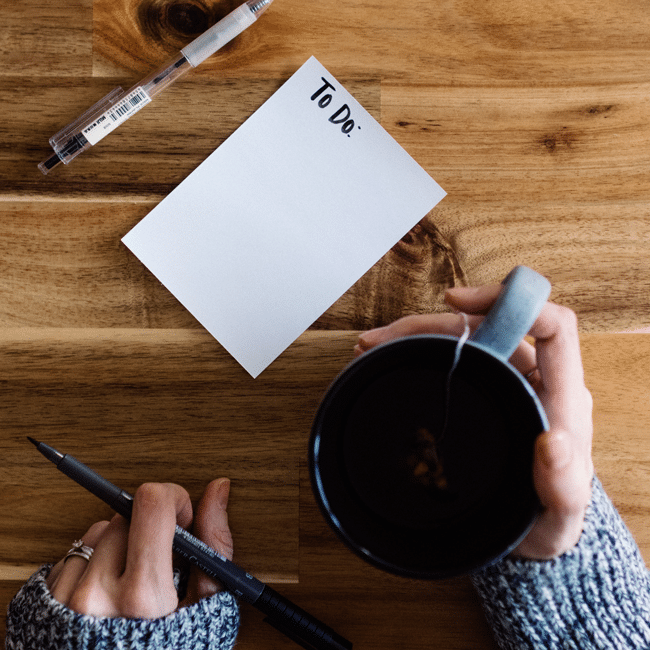In Review: The Festival of Dangerous Ideas 2018

In Review: The Festival of Dangerous Ideas 2018
Opinion + AnalysisRelationshipsSociety + Culture
BY The Ethics Centre 21 NOV 2018
Being tied in a knot of lies, the danger of scepticism, micro-dosing LSD and dismantling bi-partisan politics were just some of the themes threaded throughout this year’s Festival of Dangerous Ideas.
Thousands crossed the threshold into the Festival’s new home on Cockatoo Island. Two days, 31 sessions, and 45 speakers later, they left with a feast of ideas and new perspectives.
For the first time, the island’s unique location and new full-day festival pass meant that you could delve deeper into FODI than ever before.
Caliphate host Rukmini Callimachi shared aching stories of violence and honour in ISIS camps; conservative historian Niall Ferguson forced us all to rethink before we retweet; and pop-culture savant Chuck Klosterman had us empathising with the unlucky aliens who colonise us.
“Hard truths, fleshy realities, blunt edged disagreement and sharp new ideas – all mixed together with a throng of people in an iconic location that spoke alongside the artists and speakers. It was a brilliant amalgam, FODI at its best,” said Dr Simon Longstaff, co-founder, co-curator, and executive director of The Ethics Centre.
For the first time, the island’s unique location and new full-day festival pass format allowed FODI-goers to attend a number of the 31 sessions and delve deeper into different topics and viewpoints while enjoying talks and panels, art installations, ethics workshops and even a touch of cabaret!
Even the master-of-all-trades, Stephen Fry, couldn’t avoid the glamour. A standing ovation roared through Sydney’s Town Hall for his delivery of the inaugural keynote, The Hitch. In honour of his dear friend, the late Christopher Hitchens, Fry had the sold-out venue in oscillating between stitches of laugher and solemn agreement when he lamented the lost art of disagreement in an age of deepening extremes.
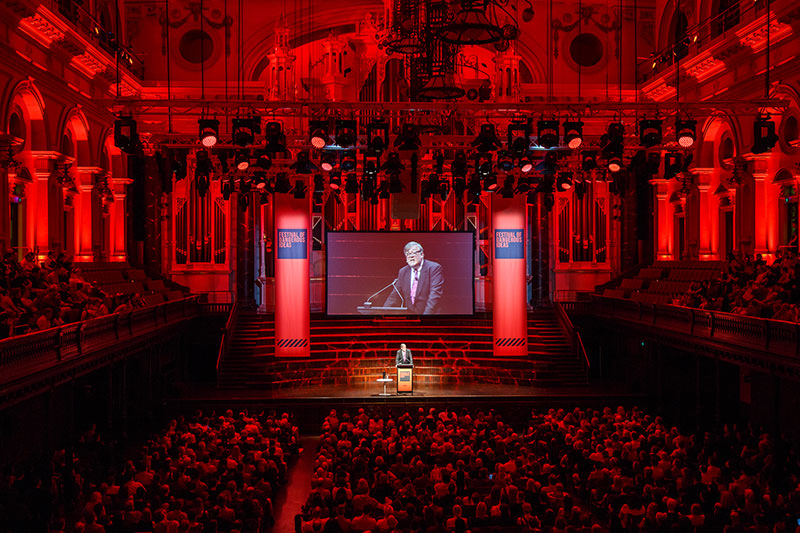
Thinkers from around the globe tackled issues of truth, trust and technological disruption, including Caliphate podcast host and New York Times ISIS foreign correspondent Rukmini Callimachi, British conservative commentator Niall Ferguson, AI man-of-the-moment Professor Toby Walsh, and pop-culture savant Chuck Klosterman.
The sold out festival drew crowds of over 16,500 seats across the weekend, with #FODI trending across social media channels all weekend.
The Centre is enormously proud of this festival which we started a decade ago to provide a space to talk about the issues that divide and baffle us without tearing tearing ourselves and each other apart. And we’re thrilled it’s been a continued success in 2018 with a fantastic new partner, The University of New South Wales Centre for Ideas, and a fitting new home.
If you weren’t able to join us, many of our sessions were recorded and we’ll be releasing them over the coming weeks and months.
We’ll keep you posted in our enews or follow us on Facebook, Twitter, Instagram and LinkedIn for more release updates.
Ethics in your inbox.
Get the latest inspiration, intelligence, events & more.
By signing up you agree to our privacy policy
You might be interested in…
Opinion + Analysis
Relationships
Five steps to help you through a difficult decision
Opinion + Analysis
Society + Culture, Politics + Human Rights
‘The Zone of Interest’ and the lengths we’ll go to ignore evil
Opinion + Analysis
Climate + Environment, Health + Wellbeing, Society + Culture
The five biggest myths of ethical fashion
Opinion + Analysis
Relationships, Society + Culture
Big Thinker: Kwame Anthony Appiah
BY The Ethics Centre
The Ethics Centre is a not-for-profit organisation developing innovative programs, services and experiences, designed to bring ethics to the centre of professional and personal life.
Inside The Mind Of FODI Festival Director Danielle Harvey

Inside The Mind Of FODI Festival Director Danielle Harvey
Opinion + AnalysisRelationshipsSociety + Culture
BY The Ethics Centre 5 OCT 2018
We sat down with Festival of Dangerous Ideas 2018 festival director Danielle Harvey to take peak into the inspirations, motivations and challenges behind creating one of the most confronting and thought-provoking events in Australia.
1. It’s been said FODI was Australia’s first disruptive festival. What is it about the festival that resonates so strongly with audiences?
People want more than a headline. They want to hear more in depth analysis and a range of perspectives. To hear straight from the academics, scientists, researchers and not have it filtered, distorted. A live festival doesn’t get more direct.
2. There are so many different ideas, themes and perspectives out there that matter. How do you narrow it down to land this year’s line up?
A lot of vigorous discussion! Myself and the co-curators are always looking at the next thing that’s going to hit, we’ve been very good at looking at the horizon in past festivals, discussing things like Russia, surrogacy and banking all before a scandal breaks.
We also look to the superstars of the non-fiction world, the academics and researchers doing great work and are great communicators. And we look for a multitude of perspectives, beyond politics. A discussion that involves people from across disciplines, experts in their field that bring to light a focus on a particular aspect and when combined help to show the complex nature of many of our biggest ideas and problems.
3. The festival has been going strong for 9 years now. What gets easier, what doesn’t?
This is my 7th FODI. I feel very lucky to have been able to grow my own understanding of the world in a very public way! The easier and harder is the same – finding great people.
Easier because people around the world know about this festival and we have great alumni and reputation, harder because we’ve presented so many amazing people and so many ideas… I look forward to next year… 10 feels like a good ‘best of’ opportunity!
4. What does it take to be a great festival director?
Curiosity about the world. I’ve curated and created a number of festivals – FODI, Antidote, All About Women, BingeFest and Mardi Gras and they always start about thinking about audiences and what they should be able to see/hear/experience. I am insatiably curious and I love finding connections between things.
5. What’s it like to produce a festival like FODI? What does a typical day look like for you?
Talking. Talking. Appreciating the amazing team around me. (I have the best people who do so much). More talking. Noodling on the internet, reading, watching. Talking some more. (I talk to people from all different walks of life to hear what is interesting them).
6. What do you think sets the 2018 festival apart from recent years?
The island! The opportunity to fully immerse yourself in a program sans distractions. It’s all about the ideas and engaging with them deeply this year. The opportunity to include more large scale art and theatre has also made this a very different festival. We have the space and time to do these things on Cockatoo.
7. Why the move to Cockatoo Island and what are the challenges or surprises in setting up a festival in the middle of Sydney Harbour?

Everything has to be barged on! That’s the biggest challenge. It’s an amazing site, full of potential, but it is an island with no real infrastructure. The history of the place is incredibly evocative and any time we go there we are amazed at this little gem sitting on our doorstep. It’s a great place to let your mind and feet wander (and wonder)!
8. Finally, we have to ask. Which bit are you most to looking forward to? What are the must-see events?
That is tough, it will all be great! I am really looking forward to Chuck Klosterman, to Rukmini Callimachi and of course Stephen Fry! I think the ‘Too Dangerous’ panel will also be full of excellent take-aways.
I am also excited about the two art installations – ‘Submission’ and ‘The Hand That Wields It’ these installations are excellent opportunities to see ideas represented in a different way rather than via a talk.
Everything you need to know: The Festival Of Dangerous Ideas 2018
From sex robots to sex clowns, to tying yourself up in lies and rope, this year’s festival on 3 – 4 November takes you beyond the hype and deep into the issues that confront and divide us.
Embrace the festival experience on Cockatoo Island with one-day or full weekend passes. All passes include free return ferry transport.
Featured speakers include ex Westboro Baptist Church follower Megan Phelps-Roper, conservative historian Niall Ferguson; iconoclast Germaine Greer; rock star of AI Toby Walsh; micro-dosing advocate Ayelet Waldman; pop culture critic Chuck Klosterman; academic and activist Mick Dodson and so many more!
To crown FODI 2018, join Stephen Fry at a special event at Sydney Town Hall, where he will deliver an oration on the lost art of fabulous disagreement.
Ethics in your inbox.
Get the latest inspiration, intelligence, events & more.
By signing up you agree to our privacy policy
You might be interested in…
Opinion + Analysis
Relationships, Science + Technology
The ethics of exploration: We cannot discover what we cannot see
Opinion + Analysis
Relationships
We already know how to cancel. We also need to know how to forgive
Opinion + Analysis
Society + Culture
Save the date: FODI returns in 2020!
Opinion + Analysis
Business + Leadership, Politics + Human Rights, Society + Culture
Corruption, decency and probity advice
BY The Ethics Centre
The Ethics Centre is a not-for-profit organisation developing innovative programs, services and experiences, designed to bring ethics to the centre of professional and personal life.
The #MeToo debate – recommended reads

The #MeToo debate – recommended reads
Opinion + AnalysisRelationshipsSociety + Culture
BY Kym Middleton The Ethics Centre 31 MAY 2018
IQ2 Australia and Vivid Ideas debated whether, ‘#MeToo has gone too far’. Here is a curated snapshot of the public conversation – just in case you’ve had your head in the sand.
Article
Harvey Weinstein Paid Off Sexual Harassment Accusers for Decades
New York Times
Jodi Kantor and Megan Twohey
5 October 2017
This is the article that broke the Harvey Weinstein story. While it’s now internationally infamous, it is well worth reading to understand how strong the structures that protected Weinstein were. It includes his first official response.
Video
TIME Person of the Year 2017: The Silence Breakers
TIME
Diane Tsai, Spencer Bakalar, Julia Lull [producers]
6 December 2017
Dishwashers, Hollywood stars, academics, hotel staff, journalists, an engineer, and even a senator feature in this short video by TIME of people speaking up against sexual harassment.
Article
I went on a date with Aziz Ansari. It turned into the worst night of my life
babe.net
Katie Way
13 January 2018
This piece wins the title of ‘Most Divisive Contribution to the #MeToo Movement’. It is both celebrated as a precise example of young women’s damaging sexual experiences and scorned for undermining #MeToo by lacking journalistic integrity and conflating “bad sex” with assault.
Article
The Humiliation of Aziz Ansari
Caitlin Flanagan
The Atlantic
14 January 2018
This response to the babe.net article labels it “3,000 words of revenge porn”. Ouch. It highlights the generational differences in attitudes to sex and feminist values that has been underpinning the #MeToo debate.
A separate yet notable moment in the generational rift between women over #MeToo was when Katie Way, the 22 year old author of the Ansari article called Ashleigh Banfield, a 50 year old female news anchor who criticised her piece, “that burgundy lipstick bad highlights second-wave feminist has-been”.
Article
Want #MeToo to serve justice? Use it responsibly
Michael Salter
ethics.org.au
31 January 2018
IQ2 guest Michael Salter is an expert in trauma, gendered violence, sexual abuse, and social media. He reflects on how the #MeToo movement can retain potency and serve justice.
Here seems a good space to explain why we invited two men to be part of this debate – Michael Salter and Benjamin Law. It’s an approach some people disagree with. The Ethics Centre and Vivid Ideas felt the conversation would benefit if both women and men took part and speak with another.
Podcast
Has #MeToo Gone Too Far, or Not Far Enough?
Waleed Aly & Scott Stephens
The Minefield
7 March 2018
A favourite ethicist of ours Scott Stephens poses a key challenge to the #MeToo movement: are we comfortable for this revolution to take innocent people as collateral damage?
It’s a question Teen Vogue columnist Emily Lindin answered with her controversial tweet, “If some innocent men’s reputations have to take a hit in the process of undoing the patriarchy, that is a price I am absolutely willing to pay”.
Video
The Feed SBS VICELAND
Jeanette Francis
“Lads, it’s time to admit if you’ve been gross.” IQ2 guest and TV journalist Jeanette Francis, aka Jan Fran, asks why there isn’t a #MeToo hashtag for men, the ‘doers’ of the harassing. This little video package with its provocation and stats on sexual harassment is a finalist in the mid-year Walkley awards.
Watch the IQ2 debate here: ‘#MeToo has gone too far’
Libby-Jane Charleston & Michael Salter vs Jan Fran & Ben Law
A collaboration between The Ethics Centre and Vivid Ideas
Ethics in your inbox.
Get the latest inspiration, intelligence, events & more.
By signing up you agree to our privacy policy
You might be interested in…
Opinion + Analysis
Relationships, Society + Culture
The problem with Australian identity
Explainer
Society + Culture, Politics + Human Rights
Ethics Explainer: Just Punishment
Opinion + Analysis
Health + Wellbeing, Relationships
Ask me tell me: Why women think it’s ok to lie about contraception
Opinion + Analysis
Health + Wellbeing, Politics + Human Rights, Relationships
People with dementia need to be heard – not bound and drugged
BY Kym Middleton
Former Head of Editorial & Events at TEC, Kym Middleton is a freelance writer, artistic producer, and multi award winning journalist with a background in long form TV, breaking news and digital documentary. Twitter @kymmidd
BY The Ethics Centre
The Ethics Centre is a not-for-profit organisation developing innovative programs, services and experiences, designed to bring ethics to the centre of professional and personal life.
The art of appropriation

The art of appropriation
Opinion + AnalysisSociety + Culture
BY Oscar Schwartz The Ethics Centre 14 MAY 2018
In March this year, paintings in an exhibition by the British artist Damien Hirst caused controversy for bearing strong resemblance to works by Aboriginal artists from the Central Desert region near Alice Springs.
Hirst, one of the world’s best known contemporary artists, unveiled 24 new paintings at an exhibition in Los Angeles. The works, called Veil Paintings, were large canvases covered with thousands of multi-coloured dots.
Many Australians immediately noticed the similarity to a style of Indigenous dot painting developed in the Central Deserts region, particularly the paintings of internationally renowned artist, Emily Kngwarreye.
Kngwarreye’s paintings of layered coloured dots in elaborate patterns portray aerial deserts landscapes crafted from memory. Her style has been passed down across generations and has deep cultural importance.
Barbara Weir, an artist from the Central Deserts, told the ABC that Hirst recreated the painting style without understanding the culture behind it. While Hirst denied being aware of Kngwarreye’s paintings, Bronwyn Bancroft of the Arts Law Centre said that he still had a “moral obligation” to acknowledge the influence of the Aboriginal art movement.
Whether or not Hirst was directly copying the style, the controversy his paintings caused centred on the ethical issue of appropriation. Should artists use images or styles that are not their own, especially when those images or styles are tied to the sacred history of another culture?
Avant-garde appropriation
While copying and imitation has been central to artistic practice in many cultures for millennia, appropriation as a creative technique rose to prominence in avant-garde modernist movements in the early 20th century.
Cubists like Pablo Picasso and Georges Braque used appropriation in their collage and pastiche paintings, often lifting images from newspapers to incorporate into their work. Marcel Duchamp developed the practice further through his ready-mades – objects taken form real life and presented as art – like his infamous Fountain, a urinal signed, turned upside down, and positioned on a pedestal.
“These artists used appropriation to challenge traditional notions of originality and often approached art as an ethically weightless space where transgressive ideas could be explored without consequence.”
The art of appropriation was further developed by pop artists like Andy Warhol and Jasper Johns in the 1950s and later in the 1980s by Jeff Koons and Sherrie Levine. These artists used appropriation to challenge traditional notions of originality and often approached art as an ethically weightless space where transgressive ideas could be explored without consequence.
A more recent proponent of appropriation as creative practice is the poet Kenneth Goldsmith, who wrote a book called Unoriginal Genius, which defends appropriation in art. He argues that in our digital age, access to information has made it impossible to be truly original. In such an environment, the role of the artist is to embrace a free and open exchange of ideas and abandon notions of singular ownership of an aesthetic or style.
Cultural appropriation
While appropriating, remixing, and sampling images and media is common practice for artists, it can cause conflict and hurt, particularly if the materials are culturally or politically sensitive. For instance, in 2015, Kenneth Goldsmith performed a poem that appropriated text from the autopsy of Michael Brown, an African American man who was shot by police.
Critics were outraged at Goldsmith’s performance, particularly because they felt that it was inappropriate for a white man to use the death of a black man as creative material for personal gain. Others labelled Goldsmith’s poems as an extreme example of cultural appropriation.
Writer Maisha Z Johnson defines cultural appropriation as “members of a dominant culture taking elements from a culture of people who have been systematically oppressed by that dominant group”. The problem with cultural appropriation, she explains, is not the act of an individual artist, but how that artist perpetuates an unjust power dynamic through their creative practice.
In other words, cultural appropriation in art is seen by some as perpetuating systemic oppression. When artists in a position of power and privilege appropriate from those who aren’t, they can profit from what they take while the oppressed group gets nothing.
Cultural sensitivity
Issues of cultural appropriation are particularly sensitive for Aboriginal artists in Australia because painting styles are not only an expression of the artist’s creative talent, but also often convey sacred stories passed down from older generations. Painting, therefore, is often seen not only as a type of craft, but a way of keeping Aboriginal culture alive in white Australia.
It is possible that Hirst was not aware of this context when he created his Veil Paintings. In an increasingly connected world in which images and cultures are shared and inter-mixed, it can be difficult to attribute where creative inspiration comes from.
Yet, perhaps our connectivity only heightens the artist’s moral obligation for cultural sensitivity and to acknowledge that art is never made in a vacuum but exists in a particular geography, history, economy, and social context.
Follow The Ethics Centre on Twitter, Facebook, Instagram and LinkedIn.
Ethics in your inbox.
Get the latest inspiration, intelligence, events & more.
By signing up you agree to our privacy policy
You might be interested in…
Opinion + Analysis
Society + Culture
Trying to make sense of senseless acts of violence is a natural response – but not always the best one
Opinion + Analysis
Business + Leadership, Society + Culture
Banking royal commission: The world of loopholes has ended
Big thinker
Society + Culture
Big Thinker: Epicurus
Opinion + Analysis
Relationships, Society + Culture
Based on a true story: The ethics of making art about real-life others
BY Oscar Schwartz
Oscar Schwartz is a freelance writer and researcher based in New York. He is interested in how technology interacts with identity formation. Previously, he was a doctoral researcher at Monash University, where he earned a PhD for a thesis about the history of machines that write literature.
BY The Ethics Centre
The Ethics Centre is a not-for-profit organisation developing innovative programs, services and experiences, designed to bring ethics to the centre of professional and personal life.
The five biggest myths of ethical fashion

The five biggest myths of ethical fashion
Opinion + AnalysisClimate + EnvironmentHealth + WellbeingSociety + Culture
BY The Ethics Centre 18 APR 2018
We all know the way we shop is unsustainable.
Australians are the second biggest consumers of textiles worldwide. We throw more than 500,000 tonnes of the stuff into landfill every day. We only wear our garments seven times before throwing them away and still buy an average of twenty seven kilograms of new clothing each year.
The ethical fashion movement promotes a cull of fast fashion’s massive social and environmental impact. But why aren’t more people engaging in it?
We spoke to Clara Vuletich about the five biggest myths of ethical fashion – and if they’re keeping people out.
1. Ethical fashion has to be exclusive
It used to be the case that shopping ethically meant visiting tiny, hole-in-the-wall boutiques, which were either aggressively minimalist or bursting with colours a Crayola pack would be shy to wear. But it’s becoming mainstream.
Vuletich says big brands like H&M and Country Road are engaging with the ethical space in ways unique to their breadth and industry relationships. Another brand, Uniqlo, has introduced a recycling drive for customers to return their secondhand clothes. Though these actions are often met with a sceptical “But it’s just PR” comment, Vuletich says they are a step in the right direction.
‘The people that work in this space aren’t monsters’, she says. ‘They aren’t all ego-driven. It’s much more nuanced than that.’ The relationship a big brand like H&M has developed over decades with their primary garment supplier in Shanghai (for example) isn’t insignificant. They know their names, their families, their lives.
2. Ethical fashion has to be vegan, natural and eco-friendly
Catch-all phrases like natural, eco-friendly, or yes, ethical, are usually a sign to look further, warns Vuletich. Cotton, one of the most prolific materials worldwide, almost always produces toxic effluent from pesticides and dyes, and relies on infamously exploitative farming environments.
According to Levi’s, one denim pair of jeans is made with 2,600 litres of water. Polyester, a synthetic material derived from plastic, is far more easily recycled and reused than any other natural material.
But polyester can take up to 200 years to decompose. In landfill, wool creates methane gas. So which is better for the environment? The complexity of textile production makes it impossible to rank fabrics on a hierarchy of environmental sustainability.
3. Ethical fashion has to be local
Cutting down transport emissions does matter. But the fact is, unless we start growing cotton farms and erecting textile mills in our local communities, the creation of any piece of clothing will have some international process to it.
A ‘Made in Australia’ tag won’t always be the guarantor of quality and safe working conditions. Neither does a ‘Made in China’ tag mean poor workmanship and sweatshops (anymore).
For the quality, bulk, and turnaround the Australian fashion market wants, whether ethical or not, international processes are not an unfortunate by-product – they are crucial to its existence. Fabric manufacturing is one of the quickest ways for communities and countries to rise out of poverty and the solution isn’t to pull the rug out from under them.
4. Ethical fashion has to be expensive
If you’re looking for a new piece of clothing where every worker in the supply chain has been paid well, it stands to reason the final product will be expensive. If you don’t have money to burn, there are other clothing choices you can make that won’t exploit the earth and human race.
Vuletich is a big fan of secondhand shopping – think Salvos, Vinnies, U-Turn, Swop, Red Cross, Gumtree… Secondhand goods they may be, but that’s not a codeword for cheap, shoddy, or badly made. Instead of a fast fashion giant, your purchase funds a local charity, business, or market stall owner.
No extra resources were extracted for anyone to get that piece of clothing to you, nor was anyone enslaved to sew your new threads. It’s likely a local near the shop donated it, so transport emissions are low, and you’re also keeping something out of landfill.
5. Ethical fashion leads to social impact
Vuletich is wary of making huge claims. Slogans like ethical fashion will save the world are just that – slogans. The effectiveness of campaigns like the 1-for-1 business model have been thoroughly debunked, and it’s doubtful buying a pair of fair trade sandals will do as much good as a country changing their labour laws. But will it have some impact? She says yes.
For someone not in the industry, the complexity is overwhelming. Trying to track the supply chain of a polyester dress might take you to one factory in Turkey, while following the history of a pair of denim jeans will take you to China – if the clothing company even knows where their raw materials are sourced. The sheer scale of garment manufacturing is the main reason ethical fashion is intimidating, and that’s not taking into account consumer needs.
Fashion is personal. People want different things from their clothing – they might want it to be free of animal products, or for it to be breathable and comfortable, or for it to be made with as little impact to local communities as possible. They might want it to make them stand out, or to make them blend in.
They might want it to be easy and careless. But with the growing social, political and environmental consciousness around fashion, it’s difficult to stay unaware. Maybe it won’t change the world, but rest assured that the choices you make as a consumer do add up.
Ethics in your inbox.
Get the latest inspiration, intelligence, events & more.
By signing up you agree to our privacy policy
You might be interested in…
Opinion + Analysis
Health + Wellbeing, Relationships
Should you celebrate Christmas if you’re not religious?
Explainer
Society + Culture, Politics + Human Rights
Ethics Explainer: Moral Courage
Opinion + Analysis
Health + Wellbeing, Relationships
This isn’t home schooling, it’s crisis schooling
Opinion + Analysis
Relationships, Society + Culture
The #MeToo debate – recommended reads
BY The Ethics Centre
The Ethics Centre is a not-for-profit organisation developing innovative programs, services and experiences, designed to bring ethics to the centre of professional and personal life.
Infographic: Tear Down the Tech Giants

Infographic: Tear Down the Tech Giants
Opinion + AnalysisSociety + Culture
BY The Ethics Centre 19 MAR 2018
An at-a-glance views at the growing influence of the tech giants.
A win for The Ethics Centre

A win for The Ethics Centre
Opinion + AnalysisBusiness + LeadershipSociety + Culture
BY The Ethics Centre 17 NOV 2017
The Ethics Centre was announced the 2017 winner of the Optus MyBusiness Awards Training Education Provider of the Year, for our innovative business ethics education program.
The prestigious annual event is Australia’s longest running awards program for SMEs. 150 finalists attended the award ceremony at Sydney’s Westin Hotel where the winners were announced across 28 award categories.
The Ethical Professional Program is our core professional education program, centred on applied ethics, quality decision making, professional practice and leadership. Exclusively devised for financial advisors, brokers, bankers and those who work alongside them, it has been rolled out across the financial service sector.
Participants who have completed the program tell us it helped them build stronger relationships with colleagues and clients, link everyday decisions back to their organisation’s strategy and purpose, and deal with complex issues as they arise.
The program consistently achieves high net promoter scores and positive feedback that indicates participants not only leave with new skills but enjoy the process too – not something you hear every day about ethics education!
We take our role as a leading provider of ethics education very seriously. As events in the world continue to shock, scare and surprise us, and our trust in core institutions appears to plummet, it can seem as if people care less and less about ethics. Our experience tells us otherwise. The people and organisations we work with across our ethics, leadership and learning programs are hungry to explore what they value, the principles they hold on to, and how to make their way through some of the most difficult ethical challenges we face today.
Our organisation has been involved in learning and education for over 25 years and are thrilled to be recognised for the transformative programs we deliver in ethics education.
As an independent non-profit specialising in ethics, we’ve been asked by many organisations, industries and governments, both locally and internationally, to provide a different kind of education and training experience.
Each of our education and training programs challenge participants to think differently – to critically examine other opinions, be consistent in their judgements, and make responsible and considered decisions. They provide the skills and tools to understand and resolve the multitude of difficult ethical challenges we all face as part of our personal and professional lives.
Ethics in your inbox.
Get the latest inspiration, intelligence, events & more.
By signing up you agree to our privacy policy
You might be interested in…
Opinion + Analysis
Business + Leadership, Health + Wellbeing, Society + Culture
Corruption in sport: From the playing field to the field of ethics
Big thinker
Society + Culture
Big Thinker: Epicurus
LISTEN
Society + Culture
FODI: The In-Between
Opinion + Analysis
Business + Leadership
Measuring culture and radical transparency
BY The Ethics Centre
The Ethics Centre is a not-for-profit organisation developing innovative programs, services and experiences, designed to bring ethics to the centre of professional and personal life.
Big Thinker: Socrates
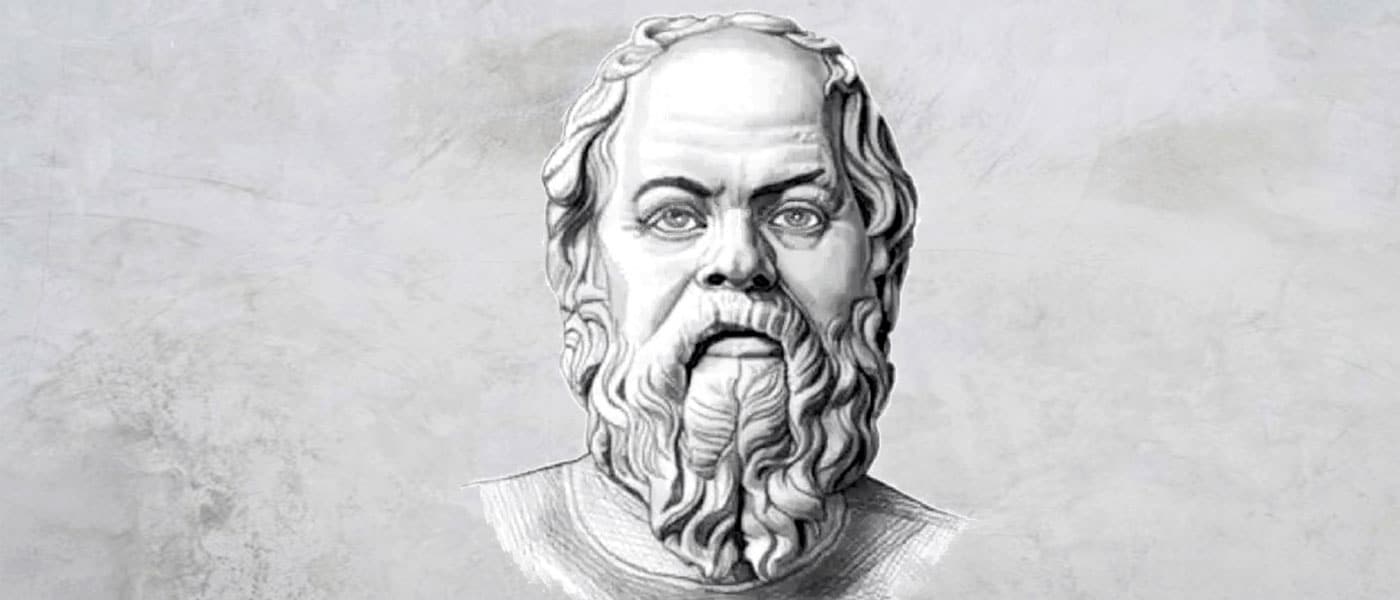
Socrates (470 BCE—399 BCE) is widely considered to be one of the founders of Western philosophy.
Stonemason, soldier, citizen, philosophy’s first ‘martyr’, Socrates helped shape one of the major intellectual foundations on which Western civilisation has been built. Yet, no work of philosophy bears his name as the author. All we know of him is derived from the work of others – especially Plato, Xenophon and Aristophanes.
The rise of ethics
Prior to Socrates, ancient philosophy tended to focus on questions that today might be considered the domain of physics. ‘Pre-Socratic’ philosophers tended to focus on fundamental questions about the nature of the universe – like the building blocks of matter or the nature of time and motion.
When Socrates came along, he proposed a completely different set of questions for philosophical deliberation. He drew attention away from questions about how the world is and towards questions about how we are to be in the world. While he made valuable contributions to the evolution of thought about epistemology and politics, it is this turn toward ethics that introduced a fresh practical dimension to philosophy.
Earlier philosophical debates of Thales, Anaximander and Democritus, for example, were all theoretical. Human knowledge and understanding might have advanced, but nothing in the world was directly changed by their deliberations.
Socrates’ focus on ethics was intended to generate practical outcomes. He expected philosophical work might lead to a change in both attitudes and (importantly) actions of people. In turn, this was intended to produce effects in the world. Although we have only come to see Socrates through the eyes of others, his friends (like Plato and Xenophon) and foes (like Aristophanes) agree he wished to have an impact on the people around him and the kind of society they were creating as a result of their choices.
What friends and foes disagreed on was Socrates’ motivation. His critics lumped him in with the Sophists who were looked down on as philosophical guns for hire.
A new focus on ethics repositioned philosophy as something relevant to everyday life. Socrates’ core question, ‘What ought one to do?’ does not apply in a limited set of circumstances. It is a question of general application to any situation where a choice is to be exercised – and is applicable to every person, whatever their station in life.
In some sense, this is what made Socrates such a troublesome – or dangerous – person. In one fell swoop, he brought philosophy into the agora (the marketplace), making it relevant and accessible to people of all ages and degrees.
This upset hierarchies and orthodoxies. As we know, a gadfly is rarely welcome. Socrates was eventually executed for crimes of ‘impiety’ and ‘corrupting the youth’ – in short, for teaching and encouraging them to question established norms and think for themselves.
The virtue of ‘constructive ignorance’
On being asked who the wisest person in Athens was, the Oracle of Delphi nominated Socrates. Socrates was astounded – he believed himself to know nothing. To prove his relative ignorance, Socrates sought to find wiser folk amongst the citizens of Athens, questioning them at length about the nature of things like justice and love.
His questioning had practical implications. At that time in democratic Athens, citizens were actively involved in enacting laws or judgements in the courts.
In the end, Socrates came to believe the Oracle of Delphi was correct – but only because his superior wisdom lay in his realising the limits of his knowledge.
Along the way to this realisation, Socrates developed the process of elenchus (the ‘Socratic method’). It is a distinctive form of questioning designed to open space for insight and self-knowledge. The idea we have much to learn about ourselves and the world might suggest we are ignorant. Such a view could position the Socratic method of questioning as a mean spirited exercise. Those subjected to it did not necessarily enjoy the experience or see it in a positive light. This no doubt contributed to the belief Socrates was an impious trouble maker.
The importance of the examined life
Although Socrates contributed many insights that are still drawn upon today (but not necessarily accepted), one of his most famous and profound is his claim that ‘the unexamined life is not worth living’.
This claim goes beyond being a recommendation we should think before we act – which may be a prudent thing to do. Socrates is attempting to draw our attention to a deeper truth about the human condition. He encourages us to participate in a form of being that has the capacity to transcend the requirements of instinct and desire in order to make conscious – that is, ethical – choices. Socrates claimed if we fail to do this, we live a lesser life.
One of the effects of examination is, according to Socrates, the development of phronesis (practical wisdom) which is the foundation for virtue. For Socrates (and later for Aristotle – in a slightly different form), the possession of virtue is not just a matter of interior orientation. It is essential to being able to see the world as it is and be able to make good decisions.
Like Aristotle, Socrates sees vice as the source of defective vision. Socrates thought people make bad choices and do bad things out of ignorance. He thought if people could only ‘see’ what is good, they would choose it.
This all finally comes together in the way Socrates challenged the status quo. To live an examined life is to reject things ought to be done just because they have always been done.
Instead, Socrates is an early exponent of an inner voice that (in Socrates’ case) is supposed to have warned him against making an error. Socrates called this voice his ‘daimōnic sign’ – something Aquinas would call ‘conscience’ over a thousand years later.
It may be difficult to distinguish the real Socrates from the versions of the man created by others – which were either celebratory or lampooning. But this we know. When given the chance to escape and avoid the sentence of death imposed on him by the Athenians, Socrates chose to stay. In defence of his ideas and in conformance with his ideals Socrates drank the hemlock and died.
He can hardly have imagined the impact he would have on the world.
Ethics in your inbox.
Get the latest inspiration, intelligence, events & more.
By signing up you agree to our privacy policy
You might be interested in…
Opinion + Analysis
Relationships, Science + Technology
Injecting artificial intelligence with human empathy
Opinion + Analysis
Relationships
How to give your new year’s resolutions more meaning
Explainer
Relationships
Ethics Explainer: Double-Effect Theory
Opinion + Analysis
Relationships
Agree to disagree: 7 lessons on the ethics of disagreement
BY The Ethics Centre
The Ethics Centre is a not-for-profit organisation developing innovative programs, services and experiences, designed to bring ethics to the centre of professional and personal life.
10 films to make you highbrow this summer
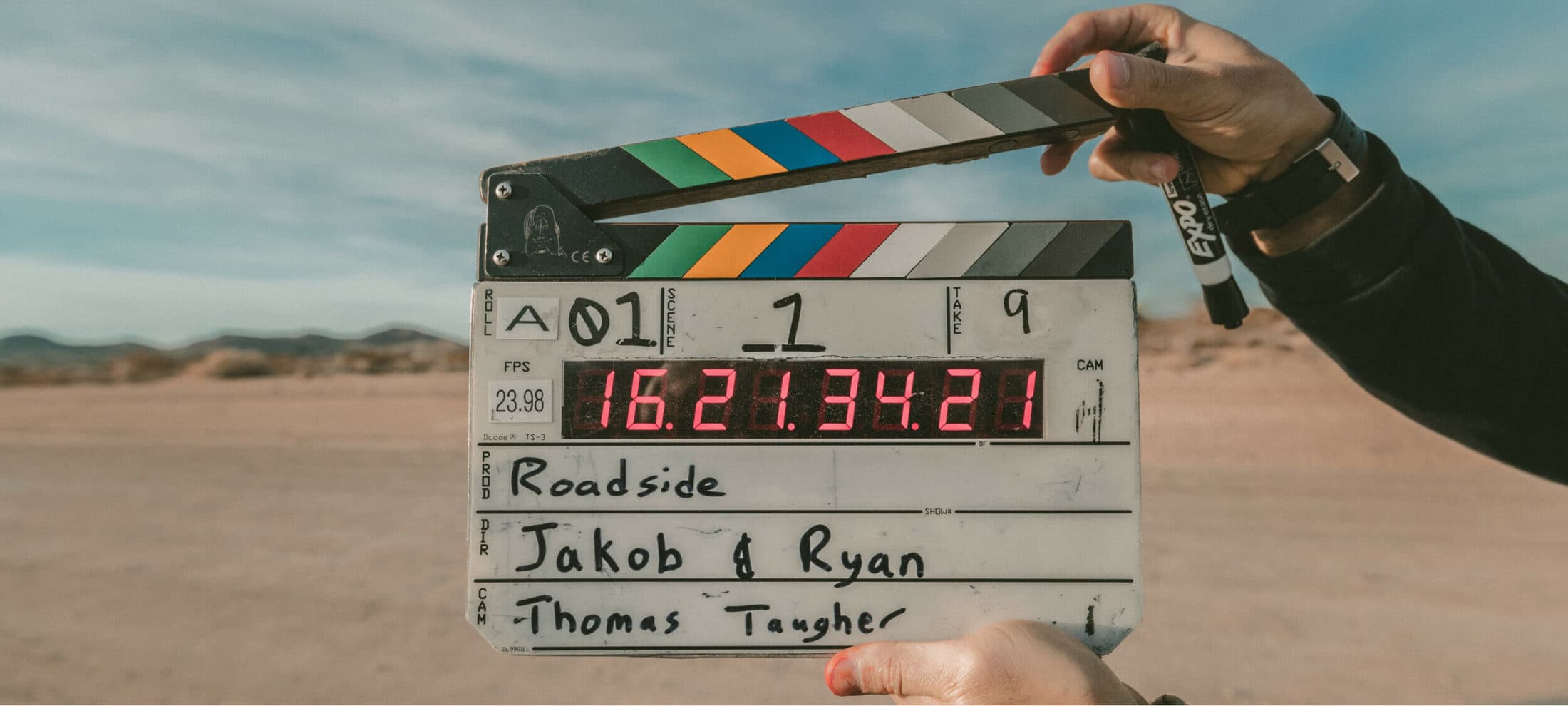
10 films to make you highbrow this summer
Opinion + AnalysisSociety + Culture
BY The Ethics Centre 7 SEP 2017
It’s not a waste of time if it’s about philosophy, right? Here are The Ethics Centre’s top 10 non-blockbuster picks for you to sit back, relax and imbibe on your holiday.
1. Examined Life
This philosophy fan’s wet dream brings heavyweights like Judith Butler, Slavoj Žižek and Cornell West together. The doco takes philosophy out of academia and onto the streets.
2. American Anarchist
There’s no putting the genie back into this bottle. A 66 year old teacher of special needs children grapples with the violent reach of the bomb manual he wrote at age 19.
3. Kedi
Filmed at whisker-height, this documentary-cum-urban love letter to Turkey’s stray cats is a lyrical and surprisingly philosophical tribute to the healing power of pets. Meow!
4. Alice
We dare you to look away from one frame of this Czech stop motion! Dissatisfied with the fairy tale film versions of Lewis Carroll’s Alice in Wonderland, the creator made this dreamlike visual spectacular.
5. Taste of Cherry
A haggard man trawling Tehran looking for someone to help bury him after he takes his own life finds different meditations on life, God, and the taste of cherry. Don’t judge it by its trailer!
6. In the Mood for Love
A lush and delicate tragedy of restraint. Two neighbours, heartbroken by their adulterous spouses, fall in love with each other.
7. A Serious Man
A troubled man seeks the advice of three wildly differing rabbis in this modern take on the Book of Job. Another quirky Coen Brothers film. What is the meaning of life?
8.Never Let Me Go
In a harrowing sci-fi dystopia, an idyllic town gives children a perfect childhood to prepare for a short-lived future as organ donors. Makes you think about farm animals in a new light.
9. The Wind Will Carry Us
A busy filmmaker set to capture the obscure, ancient burial ceremony of a 100 year old Kurdish woman is disappointed when she takes longer to die than expected.
10. Like Father, Like Son
This Japanese film transforms the typically sensationalist story of children switched at birth into a gentle and composed musing on the bonds that create families – and how we break them.
Ethics in your inbox.
Get the latest inspiration, intelligence, events & more.
By signing up you agree to our privacy policy
You might be interested in…
Opinion + Analysis
Society + Culture
The Festival of Dangerous Ideas has been regrettably cancelled
Opinion + Analysis
Society + Culture
Schools of thought: What is education for?
Opinion + Analysis
Business + Leadership, Society + Culture
Four causes of ethical failure, and how to correct them
Opinion + Analysis
Relationships, Society + Culture
The self and the other: Squid Game’s ultimate choice
BY The Ethics Centre
The Ethics Centre is a not-for-profit organisation developing innovative programs, services and experiences, designed to bring ethics to the centre of professional and personal life.
Big Thinker: Simone de Beauvoir
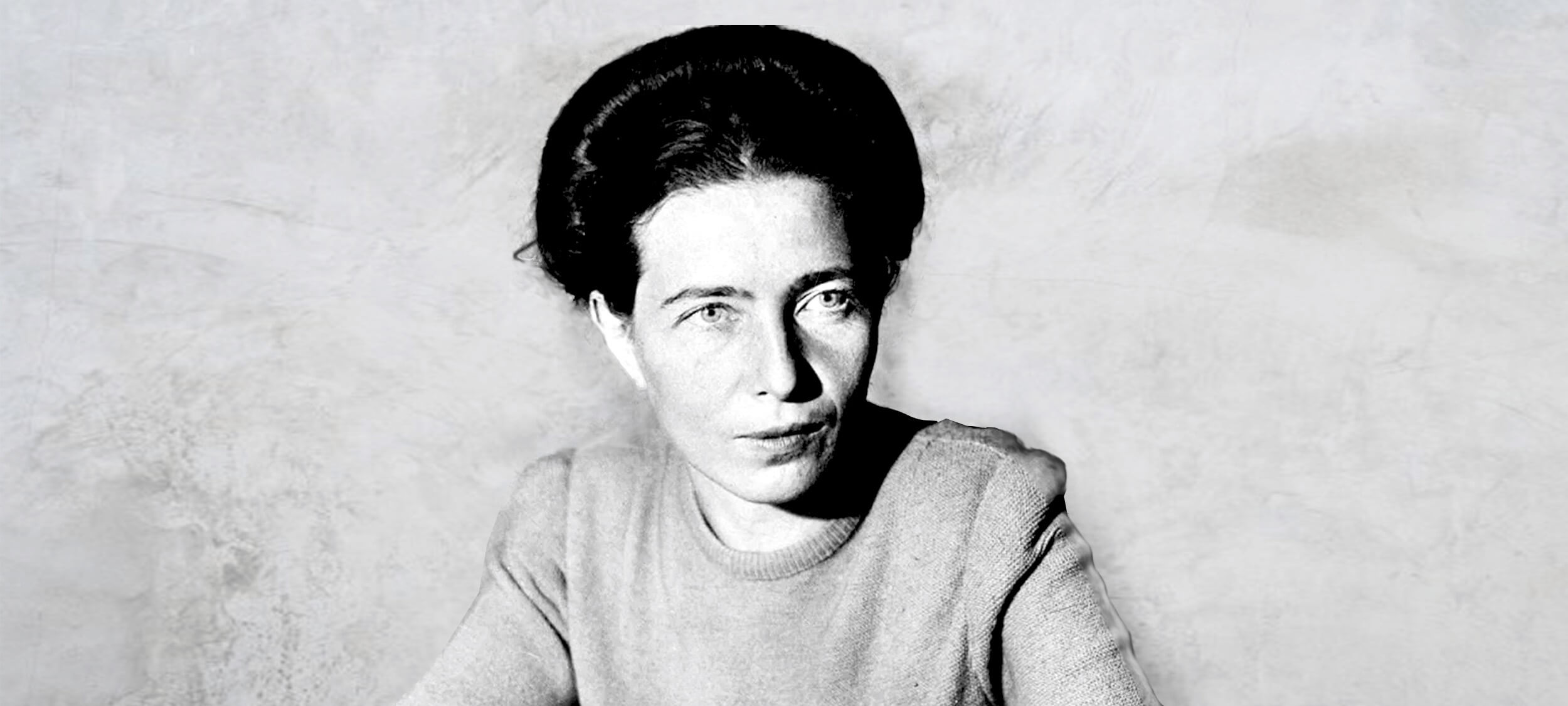
Big Thinker: Simone de Beauvoir
Big thinkerRelationshipsSociety + Culture
BY The Ethics Centre 18 MAY 2017
Simone de Beauvoir (1908—1986) was a French author, feminist and existential philosopher. Her unconventional life was a working experiment of her ideas – that one creates the meaning of life through free and authentic choices.
In a cruel confirmation of the sexism she criticised, Beauvoir’s work is often seen as less important than that of her partner, Jean Paul Sartre. Given the conclusions she drew were hugely influential, let’s revisit her ideas for a refresher course.
Women aren’t born, they’re made
Beauvoir’s most famous quote comes from her best-known work, The Second Sex: “One is not born, but rather becomes, a woman”.
By this she means there is no essential definition of womanhood. Women can be anything, but social norms work hard to fit them into a particular kind of femininity. These social norms are patriarchal and born out of the male gaze.
The Second Sex argues that it’s men who define what women should be. Because men have always held more power in society, the world looks the way men want it to look. An obvious example is female beauty.
Beauvoir holds that through norms around removing body hair, makeup and uncomfortable fashion, women restrict their freedom to serve the male gaze.
This objectification of women goes deeper, until they aren’t seen as fully human. Men are seen as active, free agents who are in control of their lives. Women are described passively. They need to be protected, controlled or rescued.
It’s true, she thinks, that women aren’t always seen as passive objects, but this only happens when they impersonate men.
“Man is defined as a human being and woman as a female – whenever she behaves as a human being she is said to imitate the male.”
For Beauvoir, women are always cast into the role of the Other. Who they are matters less than who they’re not: men. This is an enormous problem for the existentialist, for whom the purpose of life is to freely choose who they want to be.
Everyone has to create themselves
As an existentialist, Beauvoir believed people need to live authentically. They need to choose for themselves who they want to be and how they want to live. The more pressure society – and other people – place on you, the harder it is to make an authentic choice.
Existentialists believe no matter the amount of external pressure, it is still possible to make a free choice about who we want to be. They say we can never lose our freedom, though a range of forces can make it harder to exercise. Plus, some people choose to hide from their freedom in various ways.
Some of us hide from our freedom by living in bad faith, embracing the definitions other people put on us. Men are free to reject the male gaze and stop imposing their desires onto women but many don’t. It’s easier, Beauvoir thinks, to accept the social norms we’re born into. To live freely and authentically is the greater struggle.
The importance of freedom led Beauvoir to suggest liberated women should not try to force other women to live their lives in a similar way. If a small group of women choose to reject the male gaze and define womanhood in their own way, that’s great.
But respecting other people means allowing them to live freely. If other women don’t want to join the feminist mission, Beauvoir believed they should not be forced or pressured to do so. This is important advice in an age where online shaming is often used to force people to conform to popular social views.
We’re as ageist as we are sexist
Later in life, Beauvoir applied her arguments about women in The Second Sex to the plight of the elderly. In The Coming of Age, she argued that we make assumptions and generalisations about the elderly and ageing, just like we do about women.
To her, it is as wrong to ‘other’ women because they are different from men, as it is to ‘other’ the elderly because they are different from the young. Feminist philosopher Deborah Bergoffen explains Beauvoir’s view: “As we age, the body is transformed from an instrument that engages the world into a hindrance that makes our access to the world difficult”.
Like women in The Second Sex, the elderly remain free to define themselves. They can reject the idea that physical decline makes them unable to function as authentic human beings.
In The Coming of Age, we see some of the foundations of today’s discussions about ageism and ableism. Beauvoir urges us to come back to a simple truth: the facts of our existence – what our bodies are like, for example – don’t have to define us.
More importantly, it’s wrong to define other people only by the facts of their existence.
Ethics in your inbox.
Get the latest inspiration, intelligence, events & more.
By signing up you agree to our privacy policy
You might be interested in…
Opinion + Analysis
Relationships
Praying for Paris doesn’t make you racist
Opinion + Analysis
Health + Wellbeing, Relationships
How to pick a good friend
Opinion + Analysis
Business + Leadership, Society + Culture
A win for The Ethics Centre
Opinion + Analysis
Health + Wellbeing, Relationships









